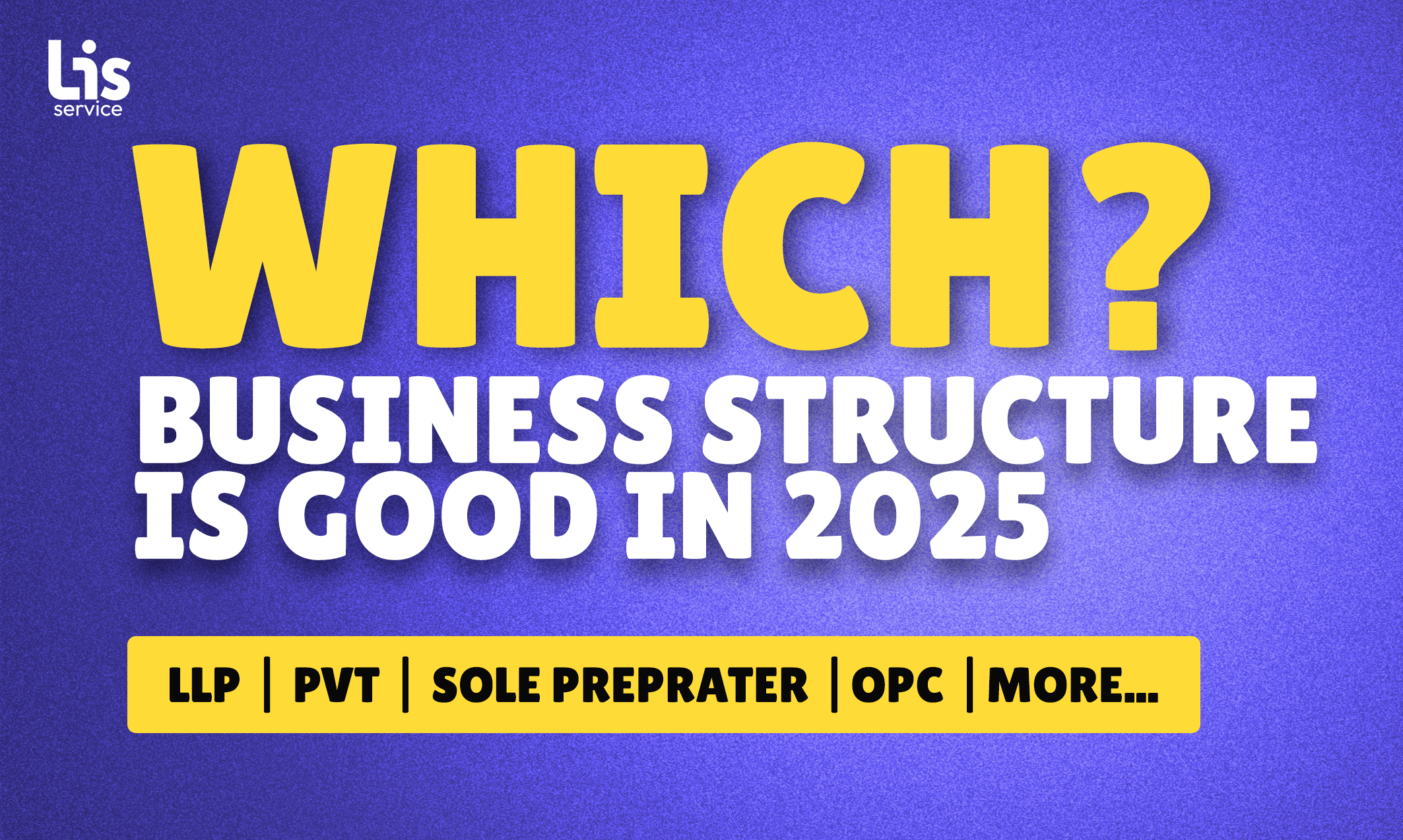WHICH BUSINESS STRUCTURE IS GOOD FOR YOU IN 2025?
INTRODUCTION
Choosing the best business entity is the foundation stone for every entrepreneur to reach success. Now, we are in 2025, we are handling business in global network and digital marketing strategy. First of all we should know what is meant by the term business. Business means the commercial activity that a person undertakes as a regular occupation. It involves profit and loss. In this blog, we will discuss various business structures that are available to make business and help you determine which business structure is right for you.
SOLE PROPRIETORSHIP- SIMPLICITY WITH PERSONAL RISK
A single proprietorship is easy to set up and gives you complete control over your business. If the owner conducts business but does not register as any other type of business, it is automatically assumed that he is a sole proprietor. This makes sole proprietorship the simplest business entity type for new entrepreneurs.
A sole proprietorship isn't a separate company. This implies that an individual's assets and liabilities are not distinct from those of the firm. The individual could be held personally liable for the company's obligations and liabilities, which is a key difference between sole proprietor and LLP. Solo owners can still obtain a trade name, though. Because stock cannot be sold and banks are reluctant to lend to single proprietorships, raising capital can also be challenging. For low-risk companies and entrepreneurs who wish to test their idea before forming a more formal firm, sole proprietorships may be a smart option.
PARTNERSHIP FIRM- SHARED CONTROL AND SHARED RISK
The most straightforward method for two or more people to jointly own a business is through a partnership. Limited partnerships (LP) and limited liability partnerships (LLP) are the two most popular types of partnership structures. The liability of the only general partner in a limited partnership is unfettered, whereas the liability of the other partners is limited. Limited liability partners usually have less control over the company, as specified in a partnership agreement.
Limited liability partnerships give each owner limited liability, just like limited partnerships do. In an LLP, each partner is protected from partnership debts and is not responsible for the actions of other partners. Partnerships can benefit professional organizations (such as lawyers), enterprises with several proprietors, and those who wish to test their business idea before forming a more formal business.
STRUCTURE DETERMINES STRENGTH
The Perfect form of Business differs with respect to their qualities, abilities and nature of formations. All forms of business have both pros and cons. The Businessmen should start the business considering all the relevant factors. Selecting the right corporate structure is a strategic foundation in 2025 and not merely a legal requirement. Your decision will be influenced by your company's objectives, financial planning, liability threshold and compliance readiness. Although each form has pros and cons, they can be a potent growth accelerator if they complement your objectives. This form is best suited for large enterprises with substantial capital requirements and a readiness for public scrutiny.
Private Limited Company: Smart Choice for Growing Businesses and Startups
Private Limited Company, a popular choice for growing businesses and startups in India. Private Limited Company offers a separate legal identity and limited liability protection, so shareholders personal assets are safeguarded. A Private Limited Companies can also transfer ownership easily and raise capital from investors. It is necessary to comply with the Companies Act, 2013, that includes annual filings, board meetings, and statutory audits. A Private Limited Company is a perfect choice for entrepreneurs looking to build credibility, scale up, and protect personal assets.
Public Limited Company: Unlocking Access to Capital Markets
A Public Limited Company is listed on a recognized stock exchange and can offer shares to the public. Upon listing on a recognized stock exchange, large amounts of capital can be raised through share offerings, bonds, or debentures. Public Limited Companies, enjoy separate legal identity and limited liability protection. They are subject to disclosure norms, compliance obligations, and corporate governance standards, under the Companies Act, 2013, and SEBI regulations. The companies are required to meet minimum share capital requirements, issue a prospectus and have at least three directors. This structure is best suited for large enterprises with substantial capital requirements and a readiness for public scrutiny.
STRUCTURE DETERMINES STRENGTH
The Perfect form of Business differs with respect to their qualities, abilities and nature of formations. All forms of business have both pros and cons. The Businessmen should start the business considering all the relevant factors. Selecting the right corporate structure is a strategic foundation in 2025 and not merely a legal requirement. Your decision will be influenced by your company's objectives, financial planning, liability threshold and compliance readiness. Although each form has pros and cons, they can be a potent growth accelerator if they complement your objectives. This form is best suited for large enterprises with substantial capital requirements and a readiness for public scrutiny.
